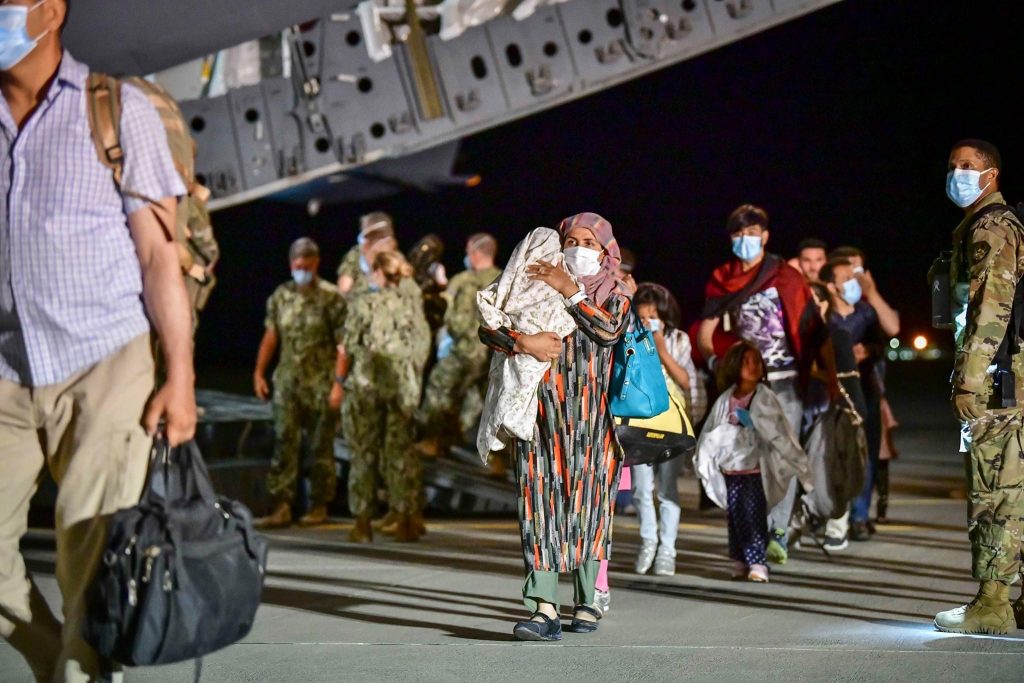The End Of A 20-Year War
President Biden has announced that American troops will be completely removed from Afghanistan by Sept. 11, 2021, leaving Afghanistan’s future unknown.

Tiarra Drisker ‘25
As America approaches the 20th anniversary of 9/11, the most devastating terrorist attack on U.S. soil, President Biden declared that American forces are completely departed from the 20-year conflict in Afghanistan. The U.S. expected the Afghan military to fight the Taliban for years after American forces withdrew; but in just 11 days, the Taliban gained control of most of the country.
America’s part in the Afghanistan War began in 2001 after president George W. Bush declared a “war on terrorism” in response to the 9/11 attacks. Al-Qaeda was linked to the attacks and al-Qaeda leader Osama bin Laden would later take full responsibility. The Taliban was providing a place for both al-Qaeda and bin Laden to hide in Afghanistan. Thus began America’s war in Afghanistan.
“A lot of people call the war in Afghanistan the ‘1 percent war’ because only about 1 percent of our population was fighting,” Terry Anderson, a professor in the department of history and Vietnam veteran, said. “We did not have massive death numbers and a huge percentage of our people fighting like during World War II or Vietnam.”
The war in Afghanistan was fought by an all-volunteer force. By Dec. 9, 2001, the Taliban surrendered Kandahar and al-Qaeda was forced into hiding as a result. In 2006, the Taliban had a resurgence and began carrying out attacks in Afghanistan. After years of hiding, the Obama administration found and killed Osama bin Laden in 2011.
“The United States lost interest in Afghanistan after the death of Osama bin Laden,” Anderson said. “America hasn’t been interested in the war since 2011 because, ‘We got the bad guy.’”
While fighting the Taliban, America also established a government and army in Afghanistan that would be able to protect its nation against the Taliban’s quest for power. When president Biden ordered a full withdrawal from Afghanistan by Sept. 11, 2021, however, many Afghan government officials surrendered and the Afghan president fled.
“America trained the Afghans. The U.S. put a lot of manpower, money, and muscle into that training,” Anderson explained. “America trained other militaries in its fashion, which was a problem fighting the Taliban because the Taliban are a lot of localized forces. They were not traditional enemies.”
The conflict in Afghanistan has claimed the lives of over 2,400 U.S. military service members and cost more than $2 trillion according to Brown University’s Costs of War Project. Americans who have lost loved ones are left to wonder what it was all for now that the Taliban is back in power, but this war had some positive effects on the nation of Afghanistan. During the American occupation, Afghan women and girls had access to education and more individual rights were put in place. Now, the issue is maintaining those civil rights as well as maintaining a fair government.
“Afghanistan is going to be a divided country, a country where the local officials are going to have a lot more power than the Kabul government,” Anderson said. “The Taliban said that they will recognize the rights of women. Because this is a 13th-century government that is trying to get back to the seventh century, they’re eventually going to take some rights from women. I think there are going to be pockets where warlords are going to reassume power and give the Taliban problems.”
